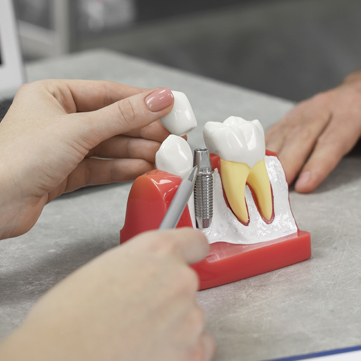Introduction
Dealing with an underbite can be frustrating, especially when you’re eager to see fast improvements. Whether you’re concerned about appearance or functionality, many patients are looking for reliable, efficient ways to correct this common dental issue. If you’re wondering how to fix underbite quickly and safely, you’re in the right place.
Let’s take a deep dive into what causes underbites, the most effective treatments available today, and common pitfalls to avoid.
What Causes an Underbite?
An underbite happens when your lower teeth extend beyond your upper front teeth. It’s not just about appearance—this alignment issue can affect chewing, speech, and even jaw comfort.
Key causes include:
- Genetics: Often, an underbite runs in families.
- Childhood habits: Thumb-sucking or extended pacifier use.
- Jawbone issues: Disproportionate upper and lower jaws.
- Tooth alignment problems: Crowding or missing teeth can shift your bite.
Can You Really Fix an Underbite Fast?
“Fast” is relative when it comes to orthodontic treatment. While some methods offer quicker results, they must still be safe and customized. Fixing an underbite fast is possible, but only if it matches the severity of your case and your overall oral health.
Minor underbite? Clear aligners may take 6–12 months.
Severe skeletal issue? You may need surgery, which takes longer.
What Works: Effective Underbite Treatment Options
- Invisalign®
For many patients, Invisalign® in San Antonio, TX, is the go-to solution. These clear aligners are custom-fitted to gradually move your teeth into proper alignment.
Benefits include:
- Removable for easy eating and brushing
- Less noticeable than traditional braces
- Typically quicker for mild to moderate cases
- Braces
Traditional braces remain highly effective for moderate to severe underbites, especially when precise control over tooth movement is required.
- Jaw Expanders
Often used in children and teens, jaw expanders work by widening the upper jaw over time to correct bite alignment.
- Tooth Extraction
In some cases, overcrowding causes underbites. Removing one or more teeth can make space and reduce misalignment.
- Surgery
For skeletal underbites, surgery may be necessary. It’s typically reserved for adult patients when bone structure is the root issue.
What Doesn’t Work
Not all trendy fixes live up to their promises. Be cautious of:
- DIY dental devices: These can do more harm than good.
- Over-the-counter mouth guards: They won’t realign your teeth.
- Quick-fix aligners with no dental oversight: Results may be ineffective or damaging without proper evaluation.
How Long Does Underbite Treatment Take?
When patients ask how to fix underbite quickly, they often hope for a one-size-fits-all timeline. But the reality is that treatment duration varies depending on your age, the severity of your case, and the method chosen.
Here’s a general idea:
- Mild cases using aligners: 6 to 12 months
- Moderate underbites with braces: 12 to 24 months
- Severe skeletal underbites with surgery: 18 months or more (includes prep and recovery)
Treatment doesn’t stop when the appliances come off. Retainers or additional aligners may be needed to keep results in place. Follow-up visits are crucial for long-term success.
The Truth About “Fast” Fixes
Quick results sound great—but lasting results require professional guidance. If someone offers to fix your underbite in weeks without evaluating your bite thoroughly, it’s time to get a second opinion.
Tips to Speed Up Your Treatment (Safely!)
You can support faster progress by:
- Wearing aligners as instructed (usually 20-22 hours/day)
- Attending all check-ups
- Practicing excellent oral hygiene
- Avoiding habits like chewing gum or nail-biting
How to Know If You Need Treatment
Here are a few signs that you may need underbite correction:
- Chronic jaw pain or clicking
- Difficulty biting or chewing
- Speech issues
- Tooth wear or enamel erosion
- Feeling self-conscious about your smile
If any of these apply to you, it’s a good idea to consult a dentist in San Antonio, TX who has experience with underbite correction.
Bonus Listicle: Questions to Ask Your Orthodontist
- How severe is my underbite?
- What treatments do you recommend and why?
- How long will it take?
- Will I need surgery?
- What’s the total cost, and does insurance cover it?
Final Thoughts
Fixing an underbite doesn’t always mean a long, painful journey. In fact, with the right treatment plan, many patients see noticeable improvements within months. The team at Terrel Hills Dental is here to guide you with tailored, expert care—so you can smile, chew, and speak with confidence.
Ready to explore your options? Finding a dentist near you who understands modern orthodontic solutions is your first step to a healthier, balanced smile.
Let’s put your underbite worries behind you—starting today.






